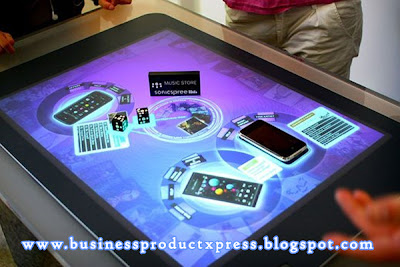
Microsoft this week
filed a patent application jacket a novel way to construct a
"tactile" touchscreen a display that uses technical tricks to induce
users they are actually touching the ridges, bumps and textures of a displayed
image.
Whereas previous
screens shaped only an illusion of texture, Microsoft proposes producing a real
texture, using pixel sized shape-memory plastic cells that can be ordered to overhang
from the surface on command.
It's a new draw near to
the challenge, but not the first. Communications giant Nokia, Disney
Research in Pittsburgh, Pennsylvania, and a Finnish firm called Senseg are
all mounting displays that use voltages of dissimilar frequencies, applied to a
grid below the touchscreen, to trick our fingertips into experience a wide
variety of touch sensations. They are recognized as vibrotactile displays.
They work well, but
have boundaries. For one thing, they can be noisy: some of the frequencies are
in the audio variety, so a buzz can be heard. Such problems may have encouraged
Microsoft to pursue a radically dissimilar approach.






0 comments:
Post a Comment